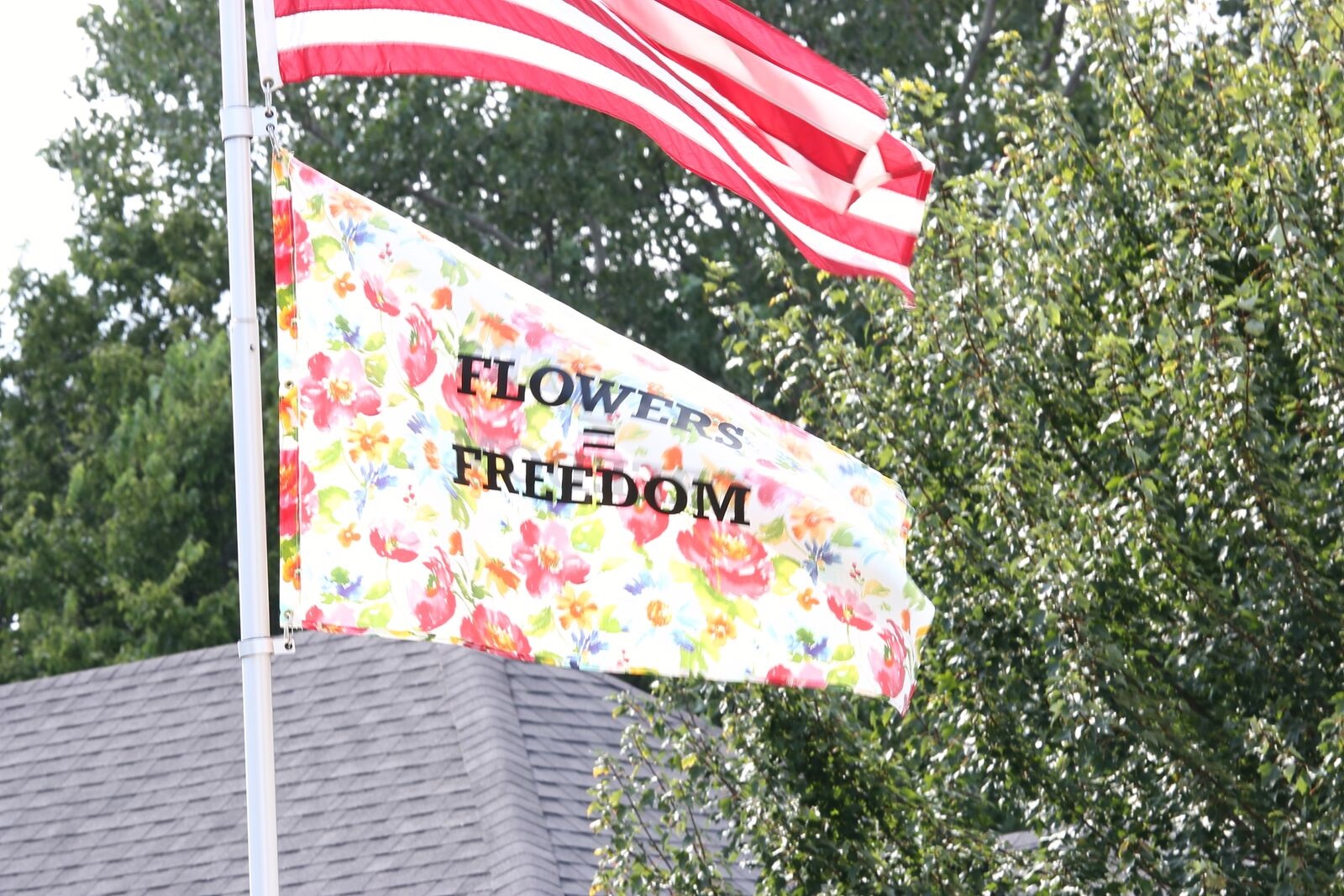BLOOMING RIDICULOUS: Eighth Circuit Refuses to Address Constitutionality of City Ordinance Forcing Widow with Grass Allergy to Grow Turf Grass

Mexico, Missouri—Today a three-judge panel of the Eighth Circuit Court of Appeals refused to address the question of whether a St. Louis suburb can force Janice Duffner to devote at least half of her yard to growing the very plant that makes her sick. The court also refused to address the question of whether the city could punish Mrs. Duffner with hundreds of thousands of dollars in fines and decades in prison for choosing to plant flowers instead of grass, stating that courts could only rule on this claim once the city acted on its threats.

Duffner is a senior citizen who, due to her severe grass allergies, converted her entire yard into a beautiful, well-maintained, grass-free flower garden that includes a landscaped hillside and flowers blooming from multiple mulched planting areas that are interspersed with walkways, sitting areas, and two small ponds. All was well until one of their neighbors complained to the City of St. Peters that Duffner and her late husband were not in compliance with a city ordinance that requires residential property owners—at their own expense—to devote at least half of their yard to growing and maintaining “turf grass.” According to the ordinance, homeowners who do not grow the city-mandated turf grass can be penalized with fines of up to $500 and also 10 days in prison, with a separate fine and prison sentence applying for each and every day they fail to comply with the city’s mandate. Duffner is now facing potential fines of hundreds of thousands of dollars and decades in prison for declining to comply with the city’s mandate.
“This is one of the most bizarre laws I have ever seen,” said Dave Roland, Duffner’s attorney and director of litigation for the Freedom Center of Missouri. “There is absolutely nothing unlawful or harmful about Mrs. Duffner’s garden, yet St. Peters is threatening her with extraordinary fines and decades in prison simply because she chooses to grow flowers instead of a plant that makes her sick.”

This case has been pending for nearly five years. Initially filed in state court, the Missouri Court of Appeals determined that Duffner had not alleged sufficient facts to allow the courts to rule on her claim that the U.S. Constitution does not permit the government to force citizens to cultivate and maintain, at the citizen’s own expense, a plant that makes them sick. Duffner then asked the state trial court for permission to amend her pleading to present those additional facts, but the trial court denied that request. Under such circumstances, state law allows a plaintiff voluntarily to dismiss her case and get a fresh start by re-filing her pleading, so Duffner dismissed the state-level lawsuit and refiled the case in federal courts. The City claimed, however, that because the Missouri Court of Appeals had already issued a ruling – even though that ruling did not address the substance of her constitutional claims and allowed Duffner to try to amend her pleading – the federal courts were not permitted to address Duffner’s constitutional claims. Without making any reference to the Missouri case that authorized Duffner to re-file her claim, the Eighth Circuit agreed with the City and held that Duffer had lost all opportunity to have a court rule on her federal property rights claim.
Duffner-v.-City-of-St.-Peters-8th-Circuit-Opinion“This opinion is uniquely awful because, unless the Eighth Circuit reconsiders, it means Mrs. Duffner will have been denied any ruling at all on the merits of her property rights claim under the U.S. Constitution,” explained Jenifer Zeigler Roland, the Freedom Center’s executive director. “When a citizen raises a constitutional question, she has a right at a minimum to have courts answer that question, even if it means she loses. This opinion would prevent Mrs. Duffner from ever having a court address the substance of her federal property rights claim.”

Duffner will ask the Eighth Circuit to reconsider. If they decline to do so, Duffner will re-file her case in Missouri state courts and pursue her rights under the Missouri Constitution.
“This case is not over by a long shot,” Dave Roland said. “The Missouri Constitution provides its own independent protections for property rights and we will seek a ruling on those grounds. We will continue to fight until either we win or there are no avenues left to pursue.”
Turf War (2018) from Dan Warner on Vimeo.
Founded in November 2010, the Freedom Center of Missouri is a non-profit, non-partisan organization dedicated to research, litigation, and education in defense of individual liberty and constitutionally limited government. The Freedom Center is one of Missouri’s leading legal advocates for the constitutional protection of citizens’ right to own property and use it in harmless, lawful ways without governmental interference.
Additional information about the Freedom Center’s mission, cases, and activities can be found online at www.mofreedom.org.
# # #
[NOTE: To arrange interviews on this subject, journalists may call Dave Roland at (573) 567-0307.]

